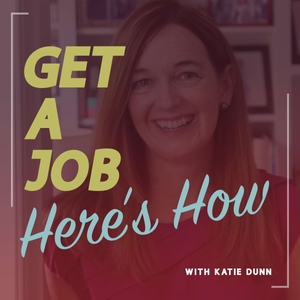
Indigenous People As Stewards Of The Earth
04/10/24 • 43 min
This conversation helps us to identify current and emerging opportunities for indigenous peoples and local communities to contribute to climate change mitigation, including opportunities for application of traditional knowledge and practices.
Panelists:
Linda Seekoei (South Africa): Linda Seekoei is a vibrant outspoken indigenous woman on a mission. She is on a mission to promote and restore the Khoisan heritage, history and language. She does this through her movement called "Khoi Kulture" on various social media platforms. Through these platforms she shares her poetry, vlogs and posts all inspired by the Khoisan people and their culture. Activism, modelling, singing and writing are among her passions and she uses these talents to further the "Khoi Kulture" movement. Having said that, she is a lover of art and occasionally she is the art itself.
Heizal Patricia Nagginda (Uganda): Heizal Patricia Nagginda is a lawyer, climate educator and environmentalist from Uganda. She is the founder of Climate Operation, a youth led organisation whose mission is to make climate education more relatable, less scientific and fun for young people.Heizal is passionate about creating more inclusive and collaborative spaces where young people regardless of their position in the climate space can have free discussions and collaborate together on relevant climate innovations for their future.
Aghmad Gamieldien (South African): Aghmad Gamieldien is the Founder and Director of Mzanzi Organics and a Miyawaki Forest Maker with SUGi. He is passionate about establishing urban forests using indigenous trees and shrubs. He mimics Afromontane forests found on the Table Mountain range in the form of pockets forests in and around Cape Town. Mzanzi Organics is a social enterprise focusing on small scale pocket farming in and around Cape Town. Aghmad has led the establishment of the Khoi First Nations Forest at the Oude Molen Eco-Village. Khoi First Nations Forest is a collaboration with the Goringhaikona Khoi tribe. This forest is a local landmark, and serves the broader community by educating visitors on indigenous tree species, biodiversity, and the benefits of rewilding urban spaces in South Africa.
Learn more about African Climate Alliance:
This conversation helps us to identify current and emerging opportunities for indigenous peoples and local communities to contribute to climate change mitigation, including opportunities for application of traditional knowledge and practices.
Panelists:
Linda Seekoei (South Africa): Linda Seekoei is a vibrant outspoken indigenous woman on a mission. She is on a mission to promote and restore the Khoisan heritage, history and language. She does this through her movement called "Khoi Kulture" on various social media platforms. Through these platforms she shares her poetry, vlogs and posts all inspired by the Khoisan people and their culture. Activism, modelling, singing and writing are among her passions and she uses these talents to further the "Khoi Kulture" movement. Having said that, she is a lover of art and occasionally she is the art itself.
Heizal Patricia Nagginda (Uganda): Heizal Patricia Nagginda is a lawyer, climate educator and environmentalist from Uganda. She is the founder of Climate Operation, a youth led organisation whose mission is to make climate education more relatable, less scientific and fun for young people.Heizal is passionate about creating more inclusive and collaborative spaces where young people regardless of their position in the climate space can have free discussions and collaborate together on relevant climate innovations for their future.
Aghmad Gamieldien (South African): Aghmad Gamieldien is the Founder and Director of Mzanzi Organics and a Miyawaki Forest Maker with SUGi. He is passionate about establishing urban forests using indigenous trees and shrubs. He mimics Afromontane forests found on the Table Mountain range in the form of pockets forests in and around Cape Town. Mzanzi Organics is a social enterprise focusing on small scale pocket farming in and around Cape Town. Aghmad has led the establishment of the Khoi First Nations Forest at the Oude Molen Eco-Village. Khoi First Nations Forest is a collaboration with the Goringhaikona Khoi tribe. This forest is a local landmark, and serves the broader community by educating visitors on indigenous tree species, biodiversity, and the benefits of rewilding urban spaces in South Africa.
Learn more about African Climate Alliance:
Previous Episode

The Case Of EACOP: How Does Climate Change Impact Human Rights?
We look at the East Africa Crude Oil Pipeline as a case study to understand how communities are being displaced, wildlife is being threatened, and the worsening effects of the climate crisis.
Panelists:
Baraka Lenga (Tanzania): Baraka Lenga is a young climate change scientist and livelihood expert, and committed climate activist, based in Tanzania. He works as a Representative of GreenFaith International Tanzania chapter. Baraka is also a striker with Fridays For Future Tanzania, whcih involves asking business leaders and politicians to act urgently against climate change. Baraka is currently running a campaign against East Africa Crude Oil Pipeline (EACOP) and all Fossil Fuel investment all over the world.
Kayinga Muddu Yisito (Uganda): Kayinga Muddu Yisito is a human rights defender addressing the needs of the vulnerable children and marginalised groups for healthy and self-reliant communities in Uganda. Kayinga is currently the Network Coordinator at the Community Transformation Foundation Network (COTFONE).
Clay Mwaifwani (Tanzania): Clay Mwaifwani is a lawyer, environmentalist, and natural resources enthusiast based in Tanzania. Clay is currently a Project Coordinator at Lawyers' Environmental Action Team (LEAT), in Tanzania, as well as a Member of the Consultative Board at Friends of Earth Africa (FoEA).
Learn more about African Climate Alliance:
Next Episode

How Does The Climate Crisis Affect Our Mental Health?
Mental wellness, mental health, and mental wellbeing are seldom conversations that are brought up when we are talking about climate change and climate justice. In this conversation, we unpack the connections between mental health, the environment, and climate justice.
Panelists:
Vuyokazi Ngemntu (South Africa): Vuyokazi Ngemntu is a writer- performer situated in Cape Town, South Africa, whose praxis uses poetry, song, physical theatre, storytelling and ritual to navigate ancestral trauma, confront inequality and inspire healing. She is an alumna of the Bodhi Khaya Artist Residency 2022, where she conceptualised and presented a seminal performance work titled ‘Ukuvuka kuka Nomhlaba: Exploring The Significance of Land In Healing’.
She is a member of the Daai Deng Hub which was awarded a grant by AfricaNoFilter to use Spoken Word, Documentary Filmmaking and Music to interpret the concerns of ordinary Africans in relation to climate change, presented at #COP27. Her short story, 'The Serpent’s Handmaiden' was shortlisted for the Share Africa Climate Change Award 2022. Her work has appeared in The Kalahari Review, Herri, Ibua Journal, Short.Sharp.Stories, New Contrast, Ake Review, Pepper Coast Lit, The Culture Review, Aerodrome and elsewhere.
Stinicah Kemunto (Kenya): Stinicah Kemunto is a mental health and psychiatric nurse practitioner, based in Kenya. Kemunto is also the founder of Threshold of Hope Africa which is a community based organization that creates mental health awareness as a prerequisite to stigma eradication through advocacy.
Learn more about African Climate Alliance:
If you like this episode you’ll love
Episode Comments
Generate a badge
Get a badge for your website that links back to this episode
<a href="https://goodpods.com/podcasts/african-climate-alliance-podcast-452430/indigenous-people-as-stewards-of-the-earth-61595237"> <img src="https://storage.googleapis.com/goodpods-images-bucket/badges/generic-badge-1.svg" alt="listen to indigenous people as stewards of the earth on goodpods" style="width: 225px" /> </a>
Copy




